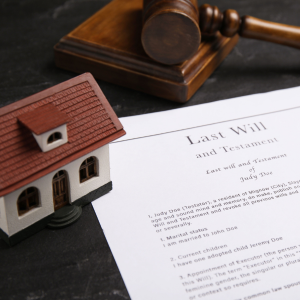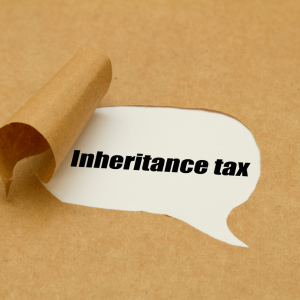
Selling an inherited house in Dallas, TX, comes with unique financial considerations, especially regarding taxes. At House Buying Heros, we help you understand everything from capital gains to property taxes so you can avoid surprises and make informed decisions during the process.
Understanding Inherited Property and Its Tax Implications
Navigating the sale of an inherited property in Dallas, Texas, involves a multifaceted process with numerous tax implications to consider. Inheriting property, particularly a home, comes with important legal and financial responsibilities that you need to be aware of. Dallas, with its dynamic real estate landscape, presents distinct challenges and opportunities for individuals looking to sell inherited properties. This piece examines what inherited property means in Dallas, TX, and discusses the effects of inheritance tax on the sale of such properties. By grasping these elements, you can more effectively maneuver through the sales process and possibly reduce tax liabilities on inherited property.
Defining Inherited Property in Dallas, TX
Inherited property is property that someone gets after the original owner dies, usually through a will or estate plan. In Dallas, TX, this usually entails a legal process called probate, in which the court checks the will and makes sure that the estate’s assets are distributed fairly. It’s vital to remember that you can’t sell or live in an inherited home right away; you have to go through the probate process first. The process can take a long time, especially if the estate is big or if the heirs can’t agree on anything. The burgeoning real estate market in Dallas, which has its own set of rules and laws, makes this scenario even more complicated.
The first step in Texas probate is to file an application to probate the will in the county where the person who died lived. If there is no will, Texas law decides who gets the estate through intestate succession. If you get property through a will or through intestate laws, a judge must oversee the process to make sure it is fair. Before you sell anything, you need to make sure you have clear title ownership. If there are any unresolved probate concerns, the sale could be delayed and cause legal problems.
The fair market value of the property at the time of the original owner’s death is important for figuring out how much tax the new owner will have to pay when they sell it. The real estate market in Dallas changes a lot, which affects how much properties are worth. This value is very important since it is the starting point for figuring out how much capital gains tax you could have to pay when you sell the property. You may have to pay a lot of taxes if the property you inherited has gone up a lot in value since you got it. The real estate market in Dallas is doing well, which means that property values can go up quickly. This makes it very important to get an exact property value.
To fully understand the difficulties of inheriting property in Dallas, you need to be aware of both the emotional and financial responsibilities that come with it. Working with real estate professionals who know the Dallas market and probate lawyers can give you useful information. They can help you get through the probate process quickly and make sure you meet all of your legal requirements while getting the most money out of the property you inherited. By doing this, you can prepare yourself better to handle both the sale and the taxes that come with it, which will help you avoid problems.
The Role of Inheritance Tax in Property Sales
Inheritance tax can make it much harder to sell property that you got from someone else. Texas doesn’t have a state inheritance tax, but there are federal estate taxes that may apply, especially if the estate is worth more than a specific amount. The federal estate tax exemption is large, which means that most estates won’t have to pay this tax. However, it’s still crucial to know what the federal government requires so that you don’t end up with unanticipated debts during the sale process.
The market value of the property at the time of the original owner’s death is normally used to figure out how much tax is owed on the gain from selling it. This increase in basis lowers the possible capital gains tax, which is the tax on the profit made from selling the property. Imagine that you get a house worth $500,000 after the original owner dies. If you sell it later for $600,000, you will have to pay capital gains tax on the $100,000 profit, but the rates may be better than those for other types of income.
Understanding capital gains is very important when it comes to paying taxes on an inherited home. Property owners can use measures to lower their taxable gains, like completing improvements before selling or choosing installment sales to stretch the tax bill over several years. When you make big renovations to a property, the money you spend on them could raise the property’s basis, which would lower the capital gains when you sell it. Talking to tax experts can help you come up with a plan that keeps your tax bills as low as possible while getting the most money back.
When you sell an inherited property, planning ahead for taxes makes sure you don’t get caught off guard by big tax bills. Using tax credits and exemptions where you can can help lower the amount of taxes you owe. Also, knowing the details of Dallas tax rules and how they work with federal laws will help you make smart choices. By getting competent guidance and staying up to date on possible changes to tax laws, you can increase your chances of making money when you manage and sell inherited assets.
The Process of Selling an Inherited Home

It can be hard to sell a house you received in Texas for several practical and emotional reasons. If you need to sell your home for cash in Dallas and other cities, it’s essential to understand the necessary steps and potential challenges involved. Selling a family property often requires making repairs to prepare the house for sale and dealing with the everyday issues when you inherit real estate. By taking a methodical approach, sellers can maximize the value of their estate while ensuring the transaction goes smoothly. Inherited property also comes with unique estate and tax considerations, but following a well-organized process can avoid complications and complete the sale successfully.
Steps to Prepare an Inherited Home for Sale
When it comes to selling an inherited home, the initial step is to get the property ready to attract potential buyers. The process starts with tidying up and removing unnecessary items from the house, establishing an inviting atmosphere, and highlighting the home’s possibilities. A comprehensive cleaning can significantly improve the property’s visual appeal while showcasing its essential features, increasing its attractiveness for potential buyers. In the competitive real estate landscape of Texas, this goes beyond simple cleaning; it often requires renovating or updating essential spaces such as the kitchen or bathrooms to enhance curb appeal and elevate property value.
Next, think about bringing in experts, like a realtor experienced in estate sales and a probate attorney, who can provide essential support. Realtors offer valuable perspectives on local market dynamics and assist in strategically positioning the home to stand out among competing listings. Legal professionals are adept at guiding individuals through the probate process, making certain that every requirement is fulfilled prior to the sale. This process involves grasping the essential disclosures and legal paperwork needed for selling inherited property in Texas, ensuring a seamless transaction and preventing possible issues down the line.
A crucial step is evaluating the inherited property to establish its fair market value. A professional appraisal helps you establish a realistic asking price that aligns with current market trends, while also considering any distinctive characteristics the property may possess. Precise valuation serves a dual purpose: it aids in setting competitive prices and is crucial for tax considerations, as the appraisal influences the assessment of potential gains or losses from the sale of inherited property.
Be sure to resolve any remaining debts or liens associated with the property. This may include addressing outstanding taxes, loans, or any other financial responsibilities that could hinder the sale. Addressing these concerns not only facilitates a smoother closing process but also provides reassurance to prospective buyers who may hesitate to invest in a property with outstanding financial obligations. Moreover, assessing the tax consequences linked to the sale of inherited property in Dallas, especially regarding possible capital gains taxes, is essential for achieving a favorable financial result from the sale.
Common Challenges in Selling Inherited Properties
Some problems that come up when selling family property aren’t common in normal real estate deals. One problem is the emotional effect of selling a family home full of memories. People who are emotionally attached to an item may have different ideas about how much it’s worth and what it should do in the future, which can make decisions harder and the selling process take longer. A unified approach among relatives, built on clear communication and a shared vision for the property, is necessary to get past emotional problems and make the sale go smoothly.
In the process of selling, legal issues are another usual problem. For example, the estate may still be going through probate, or there may be disagreements about the will or the beneficiaries, which can make it take longer to sell. Getting these legal problems resolved quickly is very important, and usually requires the help of an experienced probate lawyer. Legal experts can make sure that the sale follows the rules, that everyone is on the same page, and that the property title doesn’t have any problems that could stop people from buying it.
Concerns about taxes also create big problems. Although Texas does not have a succession tax, it is very important to understand how the federal estate tax affects your situation. Taxes on capital gains depend on the difference between the home’s stepped-up base value and its selling price. To avoid unexpected losses, sellers need to be aware of all the tax rules that apply and any possible deductions. An experienced tax professional can help you understand these complicated issues and suggest ways to reduce your taxes and increase your estate’s income.
Unstable markets come with their own problems. Dallas’s real estate market is very active, so property prices change all the time. The estate’s financial situation can be greatly improved by timing the sale to coincide with good market circumstances. Knowledge of market trends and the unique features of Dallas’s real estate market can help buyers avoid pricing mistakes caused by sudden market drops and ensure the property is advertised at the best price for sale. Staying flexible and using your professional knowledge to effectively manage the constantly changing market dynamics is key.
Selling inherited properties often comes with legal, financial, and emotional challenges. At House Buying Heros, we buy houses in Garland and nearby areas, making the process fast and stress-free.
Tax Considerations for Selling Inherited Property

When it comes to selling inherited property in Dallas, Texas, particularly an inherited home, there are several tax factors to keep in mind that can greatly influence your financial results. When you choose to sell such property, grasping the tax implications, such as capital gains taxes, is essential. This section delves into essential topics, including the taxation of inherited property sales, federal capital gains taxes, and the impact of cost basis on your tax obligations. By taking these factors into account, you can efficiently handle property taxes and estate taxes, which can lead to a decrease in potential tax liability when selling inherited property.
Taxes on Selling an Inherited Property: What You Need to Know
It can be hard to deal with taxes when you’re selling a property that you inherited. It’s important to know that Texas doesn’t have an inheritance tax, which can ease some worries. But you need to pay attention to your federal tax duties. The idea of the cost basis is one of the most important things to learn. In short, the cost basis of the inherited home is set back to the fair market value at the time of the original owner’s death, which is called the step-up basis. When you finally sell the home, this change usually means you will have to pay less in capital gains tax.
If the home you inherited was worth $400,000 when the person died and you sold it later for $450,000, your capital gains tax is based on the $50,000 gain. The amount of federal capital gains tax you pay depends on how much money you make and how long you owned the property. If you own a property for more than a year before selling it, you may be able to pay lower long-term capital gains tax rates, which are far lower than regular income tax rates.
When selling a home that you inherited, it’s also important to know about inheritance taxes. Texas doesn’t have a state estate tax, although federal estate taxes can apply, especially if the estate is worth more than the federal exemption level. This maximum is high, but it’s always a good idea to check the most up-to-date legislation because tax rules can change. Planning ahead and talking to tax experts will help you understand your possible responsibilities and how to use techniques to lower your taxes effectively.
Also, property taxes still apply to the inherited property until it is sold. It’s important to keep up with these payments so that no liens get in the way of the deal. It’s a good idea to talk to a realtor who knows the Texas market and a tax professional to help you sort through all of these complicated issues. These professionals can provide clarity on taxes linked to selling inherited property, helping you minimize unexpected liabilities and optimize your financial outcome.
How Federal Capital Gains Taxes Apply to Sold Inherited Property
Federal capital gains taxes apply to inherited property sales, depending on various criteria. The step-up in basis, which puts the property’s cost at market value at inheritance, is crucial. Adjustment lowers taxable gain, affecting the capital gains tax. Capital gains tax is calculated on the difference between the stepped-up basis and the selling price if your inherited property has appreciated sufficiently.
What you pay in taxes depends on your income bracket and how long you have kept the property. Long-term capital gains tax on properties owned for over a year is 0% to 20%, lower than short-term taxable income rates. Federal tax regulations are complicated; therefore, your situation may require professional advice. So, consult tax professionals to maximize tax benefits and avoid mistakes.
Know when to sell and invest in property upgrades to manage capital gains on inherited property. Property improvements boost base, minimizing capital gap. A planned sale during a market high can maximize the sale price, boosting your profit and balancing tax liabilities. Balancing the federal capital gains tax with this strategy can greatly benefit property owners.
Capital gains tax credits and exemptions should also be considered. Legislative changes affect these incentives annually. Using these benefits requires staying current on tax regulations through credible sources or engaging with a tax expert. To optimize your financial duties and sell your inherited house in Dallas, Texas, you must prepare ahead and comprehend federal capital gains taxes.
When selling inherited property, a “stepped-up basis” is set at fair market value on the date of death. Any gain is the difference between the sale price and this basis, and all inherited property is long-term. For more help, Contact Us at House Buying Heros.
Strategies to Minimize Tax on Inherited Properties

Reducing tax liabilities when selling inherited homes is difficult but possible with the right approach. You can reduce estate taxes by using careful tax planning and learning how to take advantage of capital gains adjustments. This section discusses practical tips for lowering capital gains taxes, focusing on legal and strategic methods that assist heirs during the sale process. Using these strategies in conjunction with professional counsel can have a major influence on your tax burden and increase your financial return.
Practical Tips to Reduce Capital Gains Taxes
Minimizing capital gains taxes is crucial when selling inherited property. Understanding the step-up in the foundation is key. The inherited property’s cost basis is raised to its fair market value at the original owner’s death. When selling the property, capital gains taxes are determined on the difference between the new basis and the sale price. If you inherit $500,000 and sell for $600,000, your taxable gain is $100,000, not the deceased’s initial purchase price.
Timing your selling may lower capital gains taxes. If you keep the property for more than a year, you qualify for lower long-term capital gains tax rates. Long-term profits are taxed at 0% to 20%, depending on income. Compared to short-term holdings’ higher tax rates, waiting to sell until after this time can save significant tax. Planning the sale when market circumstances are good provides a greater selling price and balances gains against taxes.
Investment in property upgrades is another useful idea. Renovations or smart upgrades might raise the property’s value and cost. This decreases taxable capital gains when the house is sold. Deducting $50,000 in property improvements from the selling proceeds calculates the capital gains tax. Document these modifications carefully to prove the higher basis in tax returns.
Dallas real estate and tax professionals can advise on market trends and tax legislation. Dallas’s dynamic real estate market causes rapid valuation fluctuations, which can alter tax computations. Expert assistance in managing legal and tax documents effectively and quickly helps pros succeed. A successful tax minimization approach requires knowledge of federal estate tax exemptions and local real estate laws. Regularly meeting with financial advisors keeps you abreast of tax policy changes that could affect your asset management plan.
Strategically using tax credits and exemptions lowers capital gains taxes. Certain credits or deductions may apply to inherited homes, but not principal residence exemptions. Staying abreast with annual tax code changes with sound advice maximizes your chances. Finally, consider installment sales or charitable remainder trusts to decrease immediate taxes. You can strategically manage capital gains and promote charitable causes by dividing the sale’s gain over numerous tax seasons or donating part of it to charity.
Need to sell your home? Whether you’re wondering Can You Sell a House With Asbestos in Texas or simply want to sell fast, skip repairs, and enjoy a stress-free process, House Buying Heros provides fair cash offers and handles everything. Call (855) 563-4376 for a no-obligation offer today!
FAQs:
What is Inherited Property in Dallas, TX?
Inherited property refers to real estate passed down to an individual after the original owner’s death, typically through a will or estate plan. The process may involve probate, where the court validates the will and oversees asset distribution.
What Are the Tax Implications of Selling an Inherited House in Dallas?
Selling an inherited house in Dallas involves understanding capital gains tax. The property’s basis for gain calculation is its market value at the time of inheritance. The difference between this value and selling price determines the taxable gain.
How Does the Step-up in Basis Affect Capital Gains Tax on Inherited Property?
The step-up in basis adjusts the inherited property’s cost to its market value at the previous owner’s death. This adjustment reduces potential capital gains tax by lowering the taxable gain.
Does Texas Have an Inheritance or Estate Tax?
Texas does not impose a state inheritance or estate tax. However, federal estate taxes may apply if the estate exceeds the federal exemption limit, which is substantial but subject to change, necessitating careful review of current laws.
What Strategies Can Minimize Tax Liabilities When Selling Inherited Property?
Minimizing tax liabilities includes understanding the step-up in basis, timing the sale for long-term capital gains tax rates, and investing in property improvements to increase the cost basis. Consulting with tax professionals is recommended for tailored advice.
Helpful Dallas Blog Articles

